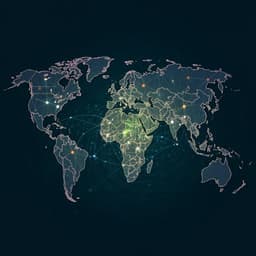
Sociology
COVID-19 confines recreational gatherings in Seoul to familiar, less crowded, and neighboring urban areas
J. Yoon, W. Jung, et al.
This study by Jisung Yoon, Woo-Sung Jung, and Hyunuk Kim explores the fallout of COVID-19 on recreational gathering habits in Seoul, South Korea. By analyzing motel booking data, the research reveals a marked shift towards familiar locations, a retreat from popular recreational areas, and a troubling increase in urban inequality. Discover the trends shaping our post-pandemic world.
Related Publications
Explore these studies to deepen your understanding of the subject.







